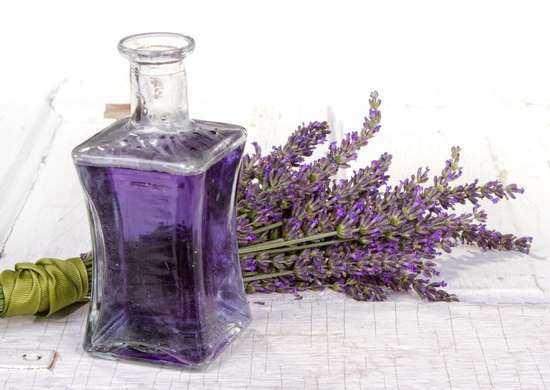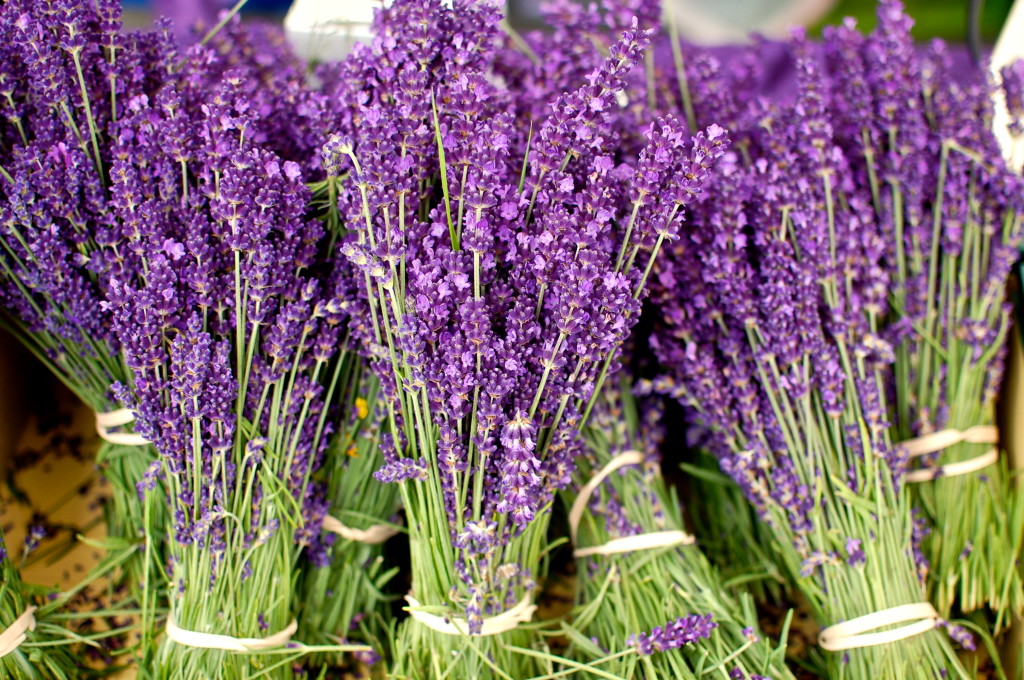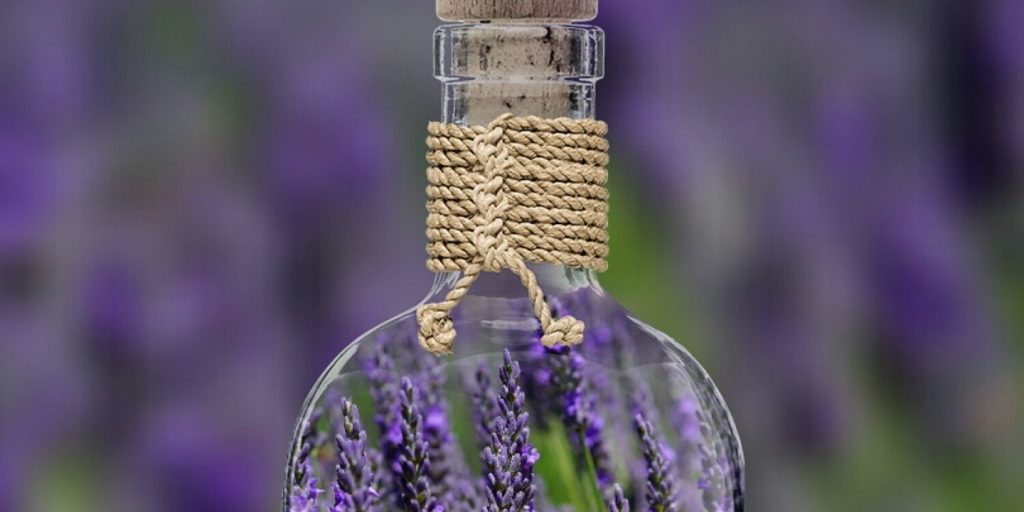Have you ever wondered if the smell of lavender could be used to keep bugs away?
It’s a popular belief that this fragrant flower can repel insects, but is there any scientific evidence to back up this claim?
Many gardeners and outdoor enthusiasts swear by its bug-repelling powers; in fact, one study found that Japanese beetles stayed away from lavender plants for up to 10 days.
But does it really work as an effective insect repellent?
In this article we’ll explore the potential benefits of using lavender to protect against pests.
Does Lavender Repel Bugs?
Lavender is a popular flower known for its pleasant aroma and attractive appearance. But does lavender have properties that could make it useful as a bug repellent? Studies suggest that the answer may be yes, with many insects finding the scent of lavender to be unpleasant or even toxic.

As such, some people use lavender-based products to repel roaches, spiders, and mosquitoes. For example, studies have shown that lavender oil can act as an effective mosquito repellent when applied directly to the skin. The strong smell of the essential oil appears to mask human scents from mosquitoes and other bugs, making them less likely to bite.
Additionally, research suggests that certain compounds in lavender oil are toxic to cockroaches; spraying affected areas with a mixture of water and diluted lavender oil has been found to help keep these pests away. Spiders also appear sensitive to lavender’s fragrance; one study showed significantly fewer spider webs were present in rooms where natural oils containing lavender were burned regularly compared to control groups without any added fragrances.
For those looking for an alternative solution outside of traditional chemical insecticides, incorporating natural products like lavender into their pest prevention plan could provide some relief from bothersome bugs.
Why Does Lavender Repel Bugs?
It’s like the call of nature when you hear about lavender’s bug-repelling capabilities. This fragrant herb has been used for centuries to ward off insects, and for good reason! Lavender is a natural repellent – it does not contain any toxic chemicals that can harm our environment or human health.
Studies have shown that lavender oil is effective at keeping mosquitoes away and reducing the number of bites from other types of bugs. In fact, research suggests that lavender oil repels up to 90% of all flying insects including flies, moths, wasps, beetles, fleas and ticks. It even seems to work against ants as well as lice.
The aromatic oils in lavender are known to be an irritant to many insect species because they interfere with their nervous systems and disrupt communication between them. As such, using products made with lavender oil may help keep your home free of annoying pests without having to resort to chemical sprays or traps.

What Does Lavender Repel Bugs?
Lavender is a well-known natural insect repellent, and many people are curious about what type of bugs it repels. Does lavender repel bugs spiders? What does lavender repel in general? Here’s an overview on how lavender can be used to naturally keep away pests:
- Lavender oil has been shown to effectively ward off mosquitoes, fleas, ticks, aphids, moths, flies and other unwanted insects.
- It also works to deter ants, beetles and even rodents such as mice. However, research into whether or not it keeps away spiders appears inconclusive.
- Do spiders like lavender? Some sources suggest that the scent may actually attract spider since they feed on insects that are drawn to its aroma. Nevertheless, some gardeners swear by using lavender insect repellent for keeping them at bay.
Using lavender as an all-natural pest repellent could prove very beneficial for those looking for an organic alternative to chemical pesticides and sprays. When selecting products containing this fragrant herb however, make sure you read labels carefully to ensure their safety and effectiveness.
How To Use Lavender To Repel Bugs
Using lavender essential oils is a great way to repel bugs without harsh chemicals.
Just add a few drops to a diffuser and the scent will help keep bugs away.
Growing lavender plants can also be effective; the smell works to naturally deter bugs.
Plus, you can use the flowers around your home for a pleasant scent and some added beauty.
Using Lavender Essential Oils
The soothing scent of lavender is often associated with relaxation, however it also has a practical purpose as an effective pest control.
Lavender essential oils can be used to repel many different types of bugs such as roaches and scorpions.
To use lavender for pest control, simply diffuse the oil or place drops around your home in areas where insects are known to gather.
You’ll soon have those pests running away from the strong smell!
Plus, you don’t need to worry about any harsh chemicals that could harm your family’s health since lavender is a natural insect repellent.
All in all, using this method of pest control can help ensure that pesky bugs stay out while simultaneously bringing a pleasant aroma into your environment – what more could you ask for?
Growing Lavender Plants
Growing your own lavender plants is another great way to repel bugs. Not only do they give off a pleasant smell, but they can also help you keep certain pests away from your home.
Lavender does indeed repel mice and other small rodents, as well as ants, aphids, fleas and moths – so it’s no wonder why many people choose this option for pest control!
You can grow these lovely purple flowers in any kind of garden or even on your windowsill indoors if you don’t have much outdoor space. Just be sure to plant them somewhere that gets plenty of sun and water.
In addition to their bug-repelling properties, lavender plants are an attractive addition to any landscape; adding both beauty and peace of mind when it comes to pesky insects invading your property.

Frequently Asked Questions
How Long Does Lavender Repel Bugs?
Lavender has long been known for its pleasant aroma and soothing properties, but did you know that it can also repel bugs?
Studies have found that when used properly, lavender can effectively keep away many common pests. In fact, one study showed that a single application of lavender oil was effective in repelling insects for up to six weeks!
This makes lavender an ideal choice if you’re looking for a natural way to protect your home from pesky critters. So how long does lavender repel bugs?
Research shows that with proper use, lavender will provide protection against most household pests for up to six weeks at a time – making it the perfect addition to any pest control regimen.
Is Lavender Effective Against All Types Of Bugs?
Lavender is a natural bug repellent that has been used for centuries.
It’s effective against many types of bugs, but not all.
Mosquitoes and flies are two common insects it can ward off, while ticks, mites, and fleas may be less affected by lavender-based repellents.
To maximize the effectiveness of lavender as an insect deterrent, you’ll want to use multiple methods in combination with each other.
Does Lavender Have Any Other Uses Besides Repelling Bugs?
Lavender has many uses beyond being an effective bug repellent.
It is often used as a calming scent in aromatherapy, as it has been proven to have relaxing and sleep-inducing qualities when smelled or applied directly to the skin.
Additionally, lavender can be brewed into tea for its health benefits and even mixed with salt for a luxurious bath soak.
Its antiseptic properties also make it an ingredient in some natural cleaning products, making it great for those looking to reduce their use of chemical cleaners.
Are There Any Safety Concerns When Using Lavender To Repel Bugs?
When using does lavender repel bugs, there are some safety concerns that must be taken into account.
Lavender oil can cause skin irritation and photosensitivity in certain individuals when applied topically.
Additionally, it is important to keep the area ventilated where you are applying the lavender if you intend to use a diffuser or spray bottle since inhaling large amounts of essential oils may be hazardous.
Lastly, take care not to apply too much of the oil as this could lead to an increase in bug activity due to its strong scent.
Are There Any Other Natural Alternatives To Lavender For Repelling Bugs?
In search of alternatives to repel bugs without the use of chemicals, many turn to natural fragrances like lavender.
But for those seeking a different scent, there are other options available – from an aromatic figure of speech!
Marigolds and citronella provide powerful yet pleasing smells that can be used as an effective bug repellent.
Citronella candles are a simple way to keep mosquitoes away while marigold flowers placed around windows and doors also do their part in keeping pests out.
Their bright colors make them more than just useful but aesthetically pleasing too!
Conclusion
It is clear that lavender can be a reliable and natural alternative to chemical bug repellents. Its aromatic scent not only repels bugs, but it has many other uses as well.
In fact, the smell of lavender could almost be described as heavenly – like nothing else in this world! It’s no wonder why people have been using it for centuries as a way to ward off unwanted pests.
While there may be some safety concerns when using lavender to keep bugs away, its effectiveness and versatility make it an ideal choice for anyone looking for an all-natural solution to their insect problem.

